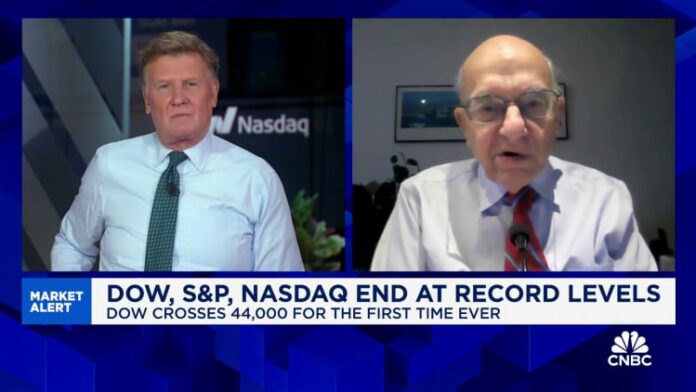President-elect Donald Trump's pro-business policies could give the stock market a bigger boost than any previous administration, according to Jeremy Siegel, a finance professor at the Wharton School at the University of Pennsylvania.
“President-elect Trump is the most stock market-friendly president we've had in our history,” Siegel said Monday on CNBC's “Squawk Box.” “He measured his success in his first term by how well the stock market performed. You know, it seems to me very unlikely that he will implement policies that will have a negative impact on the stock market.”
The market has already reached new heights in response to Trump's election victory as investors bet that his promises of tax cuts and deregulation will boost growth and benefit risk assets.
The S&P 500 rose 4.66% last week, posting its best week since November 2023 and trading above 6,000 for the first time ever. The blue-chip Dow Jones Industrial Average also climbed past a new milestone of 44,000 after the election.
Stock chart iconStock chart icon
S&P 500
Investments, considered the biggest beneficiaries of a Trump presidency, exploded over the week.
Tesla, whose CEO Elon Musk is a prominent Trump supporter, saw its shares rise 29%, returning to a market capitalization of $1 trillion. Bank stocks like JPMorgan Chase and Wells Fargo also posted big rallies. Bitcoin continued to hit record highs as traders see looser regulations under Trump.
Siegel believes Trump's corporate tax cuts from his first term in 2017 will most likely be extended.
“I think extending his 2017 tax cuts looks pretty much like a slam dunk, but extending it to all of his other tax cuts will certainly be much more difficult,” Siegel said.
Still, the president-elect's trade policies, including his promise to impose high tariffs on trading partners, could hurt growth and increase inflationary pressures at a time when the Federal Reserve has spent more than two years raising interest rates, to curb price increases.
















